Digital Detox Strategies for Competitive Exam Students in 2025
How Smarter Screen Management Improves Focus, Memory, and Exam Performance
Year in and year out, India's test-prep students spend hours glued in front of computer screens, listening to lectures, scrolling through notes, or drilling with apps. Technology has ensured learning on a level playing field, but there is a quiet new barrier: digital exhaustion. By 2025, when online teaching requires prep techniques, screen management is as important as memorizing the curriculum.
Prolonged screen usage not only leads to eye strain but also affects concentration, memory, and sleep, all of which, by default, impact academic performance. These digital detox measures are thus turning into essential commodities in the arsenals of today's test-takers.
In this guide, we’ll explore step-by-step methods to balance online learning with offline study, practical time management ideas, and how platforms like Skoodos Bridge can help students discover coaching institutes that support healthier, more balanced preparation routines.
Understanding the Impact of Digital Screens on Students
The Digital Dilemma
Computer screens are part of the educational package now. They contain lectures, test series, and notes, as well as ubiquitous distractions. The same machine monitoring your coaching video is sending social media alerts, seducing you into brief video streams, or inviting you to pause games.
A 2024 student survey found that those preparing for competitive exams spent 8 to 10 hours a day on screens, a staggering 60% of which was on studies, the remaining time being frittered away on entertainment, browsing, or chatting.
Why Time Management Is More Important Than Ever
High performers are distinguished from average performers by the way they manage their time. Effective student time management does not translate to studying longer hours, but smarter. Screen age time management is the union of two concurrent activities: study productivity optimization and screen time management.
NEET, JEE, UPSC, and students appearing for national entrance exams usually have stringent schedules and heavy syllabi. In the absence of a schedule, screen time and distractions are not only greyish but in a matter of minutes.
Let us find the way back in charge with effective detox and scheduling techniques.
Step-by-Step Digital Detox for Competitive Exam Aspirants
Step 1: Monitor Your Screenhabits
You can't fix what you can't measure. Start by keeping track of your average screen time. This is already a feature in most laptops and smartphones. Note:
- What apps or sites are taking up most of your time?
- How much time are you spending on learning courses online versus scrolling mindlessly?
- What are the times of day that are most distracting?
Once you receive the data, categorize your screen time into productive (internet studies, internet tests) and non-productive activities (social media, entertainment).
Step 2: Draw Clear Digital Boundaries
Make concise guidelines that suit you:
- Avoid phones during study peak times.
- Switch off unnecessary notifications.
- Have a dedicated browser profile or device for studying.
- Reinstate "screen-off" zones like mealtime or after 9 p.m. routines.
One useful little trick is to turn your phone to grayscale mode while studying, it suppresses visual stimulation and scrolling temptation.
Step 3: Break Study Time into Online and Offline Pieces
Breaking study time into online and offline pieces secures your attention.
During Online Sessions
- Listen carefully to live or recorded lectures.
- Take handwritten notes, not typed.
- Don't multitask, no second window, no messages.
During Sessions That Aren't Online
- Practice solving problems by hand and taking practice tests.
- Look back at the printed work.
- Talk about difficult subjects with friends or mentors in person.
A good rule of thumb: For each hour of learning on the internet, practice at least one hour off the internet.
Step 4: Attempt short digital detoxes
Take short digital detoxes during the day instead of waiting until you're burnt out.
Follow the 30-5 rule: Work on a project for 30 minutes, and then take 5 minutes of screen break time. Stretch, break, take a drink, or gaze out of the window. Do something to give your eyes a rest and freshen up your mind.
You also can choose one "digital-free block" a day, like no screens between 6 p.m. and 8 p.m., to relax, write in a journal, or enjoy something you prefer.
Step 5: Weekly Deep Detox
Take at least half a day off from all devices every weekend. Use it to read hard copy notes, socialize with friends, or simply relax. These extended detox sessions refill your enthusiasm and reduce mental junk caused by prolonged screen time.
Step 6: Think about it and give yourself a reward.
Two weeks' time. Did you spend less time in front of the screen? Do you feel more awake? Are you reading offline for longer hours? Reward yourself with a book, a walk, or your favorite snack.
Monitoring your progress helps you stay vigilant and enables you to form healthy habits.
The Before-and-After Effect of Digital Detox
Parameter | Before Detox | After 4 Weeks of Detox |
| Total Daily Screen Time | 8–10 hours | 5–6 hours |
| Distraction Time | 3 hours | 45 minutes |
| Effective Study Time | 4 hours | 6 hours |
| Focus Level (Self-rated) | Moderate | High |
| Sleep Quality | Irregular | Improved |
| Overall Academic Productivity | Average | Consistent
|
The distinction is not only quantitative but also psychological. The students display increased energy, improved memory, and elevated motivation after persistently embracing detox habits.
How Digital Detox Affects Educational Growth
Better Focus
Longer periods of concentration lead to better study sessions because there are fewer screens to use. After detox, habits have levelled off, and students find that they can redo more chapters with fewer breaks.
Better mental healthṣ
Less digital clutter means less comparing, less distraction, and less stress that isn't needed. Detox routines help you relax and get your emotions back on track, which is important during stressful exam times.
Better Sleep and Memory
Limiting screen time at night helps people sleep better, which helps their memories become stronger. When your brain is well-rested, it can remember complicated ideas and formulas much better.
How Intermediate Colleges and Institutes in 2025 Facilitate Screen Management
Intermediate colleges of Hyderabad and other learning hubs are awakening to the advantages of digital equilibrium. They're implementing:
- Hybrid classes, blending online lectures with offline guidance sessions.
- Organized "no-screen hours" in student hostels.
- Guided sessions for healthy device use and awareness.
This movement indicates that digital education doesn't always equate to round-the-clock screen dependency. It can coexist peacefully with conventional study habits when done with purpose.
How Skoodos Bridge Assists You in Creating Balanced Learning Paths
Discovering the appropriate coaching institute is a turning point for all aspirants. But not all institutes take care of students' well-being. That is where Skoodos Bridge is like a true friend.
Skoodos Bridge enables students to find vetted and reliable coaching centers in India, from web academies to hybrid academies that provide offline classes for doubt removal. Students can search for institutes according to coaching style, mode of learning, and area, so they can select an environment that is optimal for holistic preparation.
Why Opt for Skoodos Bridge During Your Exam Preparation Journey
- Blended Learning Options: Some institutes under Skoodos Bridge offer hybrid classes, maintaining screen usage in check.
- Student-Centric Reviews: Confirm authentic reviews on time management and quality of teaching before enrollment.
- Personalized Recommendations: The platform suggests institutes based on your study habits to avoid hours of useless surfing.
- Healthier Timetables: Institutes that support printed content, peer-to-peer learning, and experiential learning do not overuse screens.
Not only do candidates discover well-rated institutions through Skoodos Bridge, but they also get to access organized programs that value their time, effort, and mental well-being.
Best Time Management Techniques for Digital Study Students
Digital study and personal life require discipline. Given below are some tried and tested techniques for 2025 competitive exam students:
Make a Digital Study Timetable
Be realistic while setting daily targets. Allocate study slots into online classes and offline classes, and stick to the timetable rigidly.
Top Priority to Morning Study
Morning time is best for the greatest brain acuity and minimal digital distraction. Start the day with the toughest subjects before launching social apps.
Apply the Pomodoro Technique
Learn in uninterrupted blocks of 25–30 minutes, interrupted by a 5-minute break. After four cycles, a longer break with a 20-minute screen break.
Steer Clear of Multitasking
Tab or device switching is not as effective. Finish one module before moving to another.
Sleep Hygiene
Avoid the use of devices in your bedroom. Good sleep boosts the potential to pay attention, and it equals the number of hours of study.
FAQs
1. How does one maximise screen time while taking virtual classes?
Close extra tabs, silence notifications, and turn on "Do Not Disturb." When attempting to take handwritten notes, there is less distraction and fewer eye issues.
2. How does one conduct a successful digital detox?
Implement daily screen limits, turn off push notifications, and schedule brief device-free breaks. Go entirely offline on a single day or remove several hours per week offline.
3. How does screen usage impact the study?
Excessive screen usage reduces concentration levels, deteriorates memory, and disrupts sleep. Reduced screen usage keeps you alert and enables learning to a greater extent.
4. How do students preparing for competitive exams plan study time?
Make priority lists of key subjects, balance offline practice with online study, and stick to a fixed study timetable and revision durations with scheduled breaks.
5. What is the ideal combination of online and classroom learning?
Apply online learning to learn new things and offline studying to reinforce them. A 50-50 ratio can work best.
6. Do I even need digital detox if all my courses are online?
Yes. Although your courses are online, making arrangements for non-screen breaks refreshes the mind and prevents burnout. Detoxing keeps you motivated in the long run.
Conclusion
With education more and more going digital, the challenge lies not in avoiding technology but in being aware of it. 2025 competitive exam students need to keep in mind that success comes not just from study time but from the manner of studying too.
Digital detox is not leaving your devices behind; it's establishing barriers that provide your brain with an opportunity to heal, absorb, and function properly.
If you are looking for an equal coaching environment that accounts for wellness and technology, come to Skoodos Bridge today. Find institutions that respect your time, nurture your aspiration, and push you toward success, a mission-oriented, screen-conscious study session at a time.
Categories
Archives
- October 202512
- September 202520
- August 202522
- July 202524
- June 202524
- May 202526
- April 202530
- March 202523
- February 202513
- January 202523
- December 202429
- November 20246
- September 20245
- August 202422
- July 202415
- May 20249
- June 202424
Similar Posts
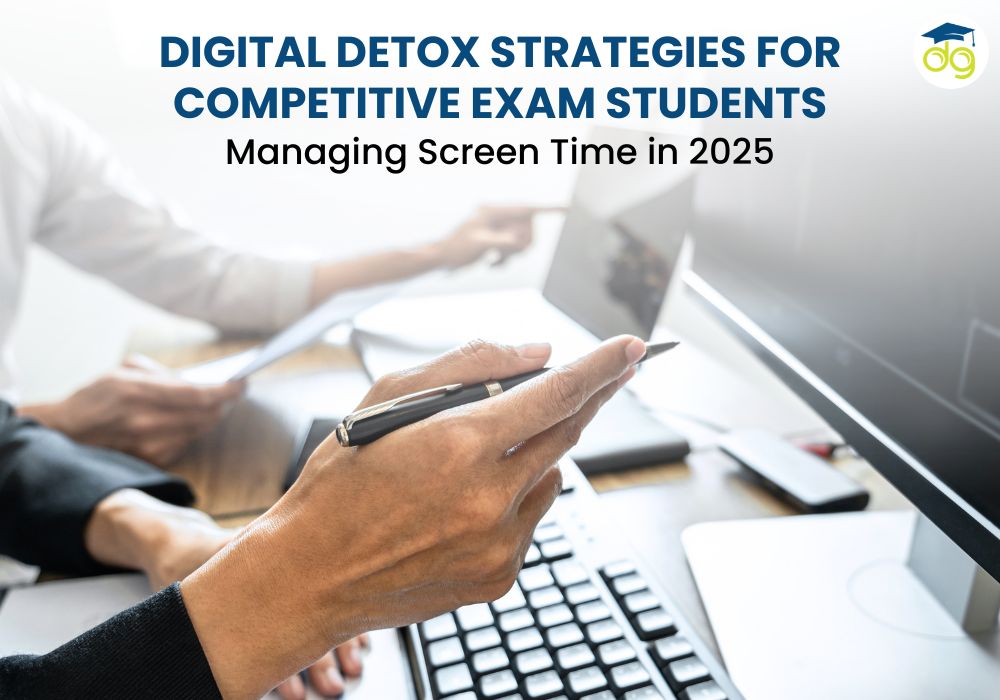
Digital Detox Strategies for Competitive Exam Students in 2025
by Skoodos Bridge
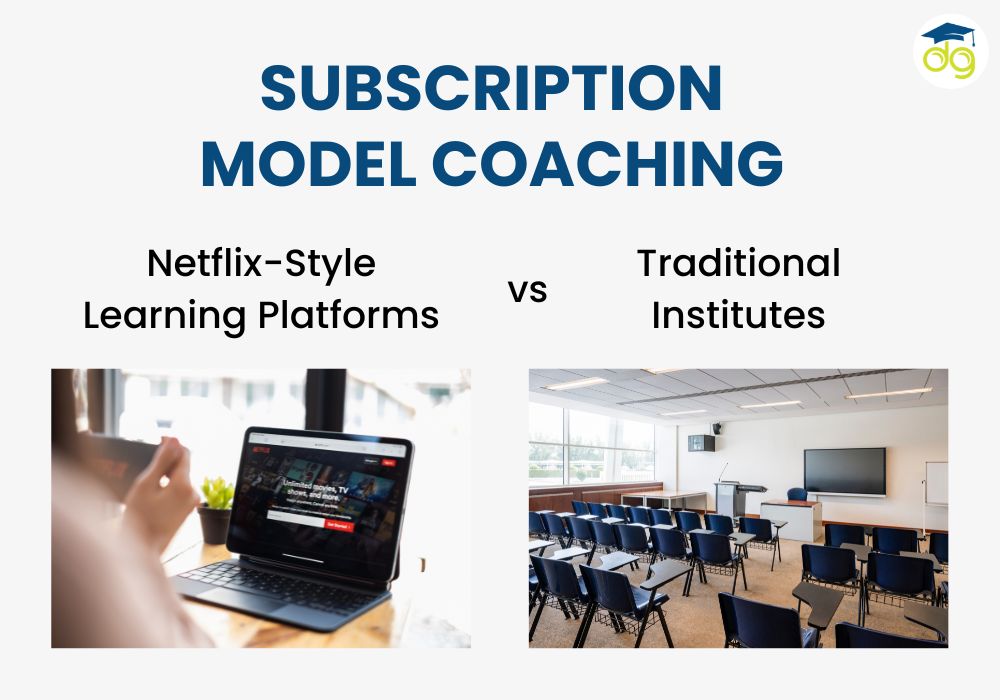
Subscription Model Coaching vs Traditional Institutes: Netflix-Style Learning
by Skoodos Bridge

Green Engineering Careers: Sustainable Jobs Through GATE, ESE & PSUs
by Skoodos Bridge

Coaching Institute Mergers in India: Impact on Students & Education Quality
by Skoodos Bridge
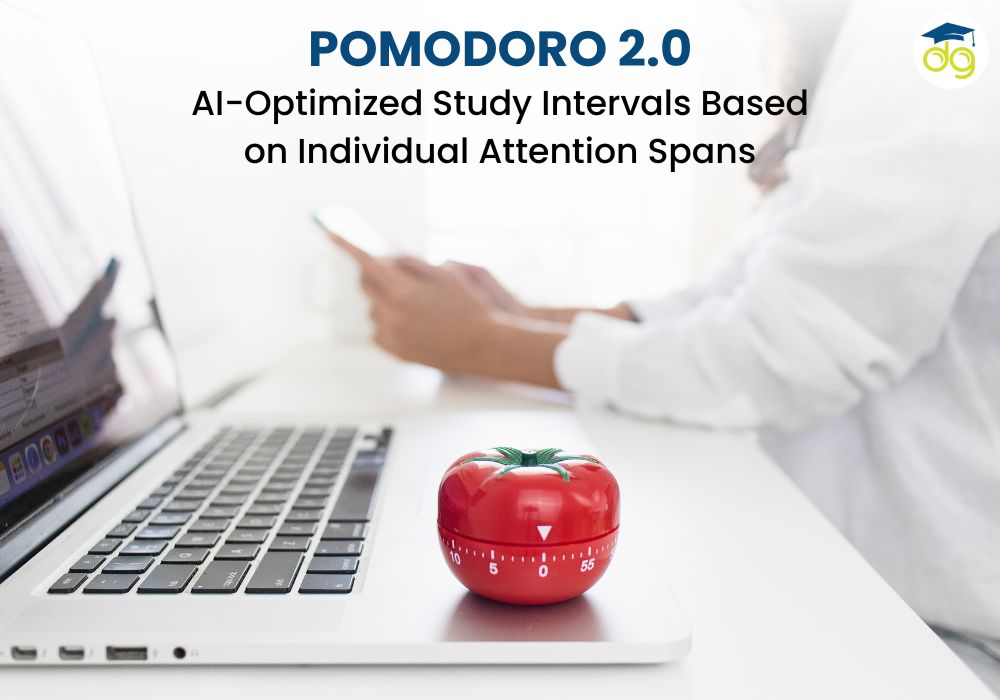
Pomodoro 2.0: AI-Optimized Study Intervals for Better Focus
by Skoodos Bridge
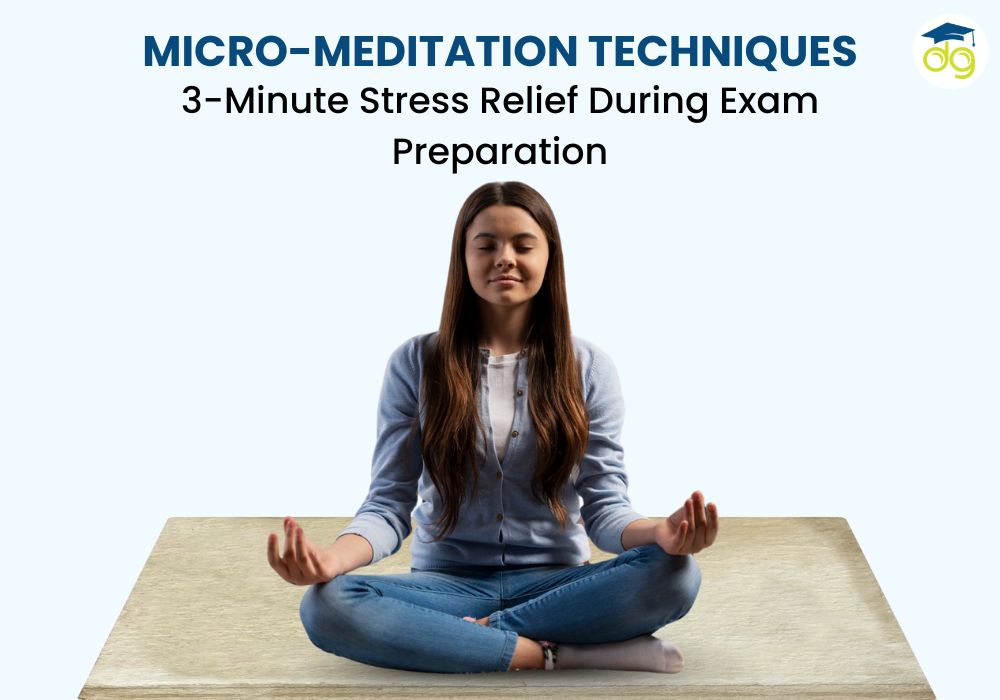
Micro-Meditation Techniques for Exam Stress Relief in 3 Minutes
by Skoodos Bridge

AI-Powered Mock Tests Transform NEET & JEE Preparation in 2025
by Skoodos Bridge

How to Build a Career Abroad After Graduation: Step-by-Step Guide 2025
by Skoodos Bridge

Top 10 Student-Friendly Cities Abroad in 2025 for Indian Students
by Skoodos Bridge
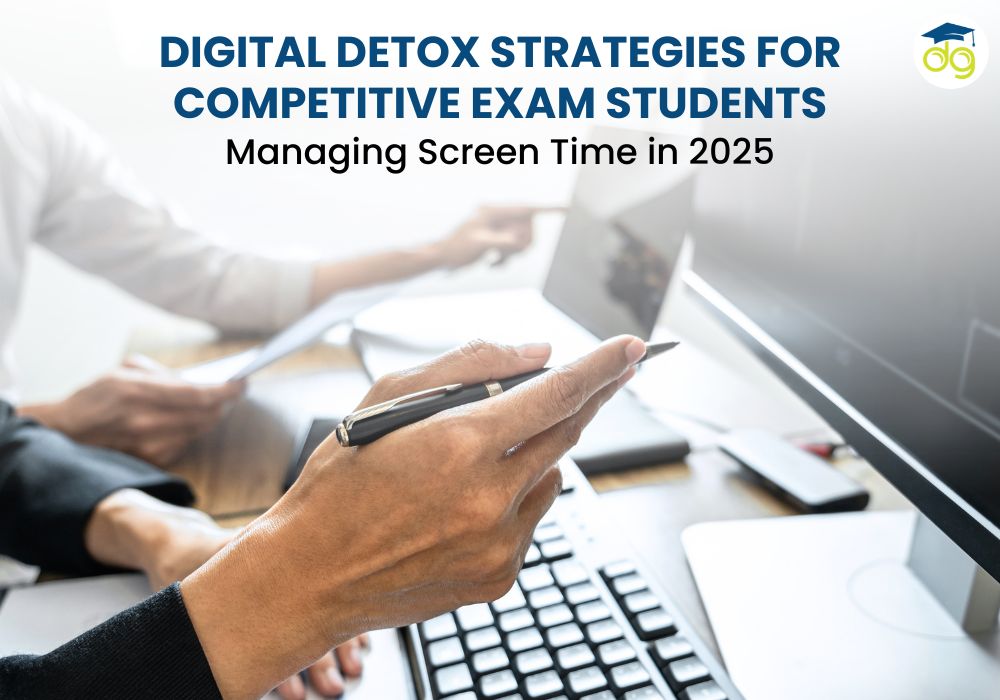

Leave a Comment